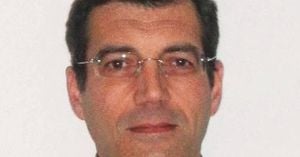In a surprising turn of events, actors Cauã Reymond and Bella Campos have managed to put aside their backstage controversies during the filming of the soap opera "Vale Tudo." This reconciliation came after a stern call from Globo's management and a threat from Reymond to abandon the nine o'clock drama. As of last week, from April 21 to 27, 2025, the duo returned to the set, working together for a marathon of seven hours. They even filmed intimate scenes as their characters, César and Maria de Fátima, reigniting interest in their on-screen chemistry.
This is not the first time Globo has faced turmoil behind the scenes of its prime-time productions. A notable incident occurred in January 1995 when the network decided to remove actors Vera Fischer and Felipe Camargo from the cast of "Mandala." The couple, who had been together for seven years, found their relationship tested amid the pressures of filming. Fischer's off-screen struggles, including a serious injury, led to a series of delays that ultimately threatened her character's fate.
On January 10, 1995, the "Folha de S.Paulo" reported that Fischer's character, Lídia, was in danger of being killed off due to her repeated absences from the set. Tarcísio Meira, who played the businessman Raul Pelegrini, was particularly frustrated, only leaving home when he received confirmation that Fischer had arrived at the studio. This situation escalated as Fischer cited inflammation in her throat as the reason for her two consecutive absences.
Adding to the drama, Fischer had broken her arm during a fight with Camargo in November 1994, which prompted directors to consider her immediate removal from "Mandala". Boni, the vice president of operations at Globo, ultimately decided to temporarily suspend her from filming until the public's interest in the incident cooled down. When she returned, however, new conflicts arose.
Fast forward to the present, and Vera Fischer, now 73, recently made headlines again as the first guest on the new segment "Pode Perguntar" on Globo's "Fantástico." This innovative segment features a celebrity being interviewed by an audience of 29 individuals with Autism Spectrum Disorder. Fischer, known for her candidness, addressed several sensitive topics during the interview, including her past struggles with drug addiction and her tumultuous marriage to Felipe Camargo.
During the segment aired on April 27, 2025, Fischer shared her views on sex and self-love, stating, "At 73, I have sex with myself. Have you heard of masturbation? It's a wonderful therapy. You don't need anyone else." This bold declaration reflects her openness about personal topics, something she has become known for over the years.
Fischer also touched on her experience as a contestant in the Miss Universe pageant in 1968, explaining her belief that she did not win because a Brazilian had won the previous year. "I really didn’t deserve to win. I wanted to be Miss to get out of the house, not because I wanted to be a beautiful Miss," she explained.
The actress recounted her father's Nazi beliefs, revealing that he moved to Brazil during World War II and was influenced by Hitler's speeches. "He believed those horrific speeches that promised a wonderful Germany," Fischer said, recounting her father's attempts to introduce her to Hitler's writings, which she rejected.
On the topic of her marriage to Camargo, Fischer reflected on the complexities of their relationship. "We were very happy, but we fought a lot due to jealousy, misunderstandings, and immaturity," she admitted. Despite the challenges, she cherishes the memories of their time together and their son, Gabriel, whom she describes as "the sweetest person in the world."
Fischer also candidly discussed her struggles with drug addiction, admitting to using cocaine during her marriage. "Cocaine gives a person power; it makes you feel powerful. I never needed it, but it was a part of my life at that time," she confessed. Her daughter, Rafaela, played a crucial role in helping her overcome her addiction by arranging for her to be treated in Argentina, away from external influences.
Reflecting on her son's supportive gesture, she recalled a heartfelt note he wrote when he was in elementary school, encouraging her to "stay beautiful, never get wet in the rain, always work to avoid poverty, and always be beautiful at heart." This note, she said, is framed next to her bed as a reminder of her son's love.
Fischer's interview was not without its controversies, as she openly discussed the challenges of facing online hate. Having only acquired a cellphone in 2020, she initially faced a barrage of negative comments. However, she now finds solace in the support from fan clubs that treat her with kindness, helping her move past the negativity of her earlier experiences.
As the conversation wrapped up, Fischer emphasized that the pressure of being idolized has never served her well. She noted that her rise to fame, particularly with the song "Rosana," which dubbed her a goddess, was overwhelming. "When I played Jocasta in 'Mandala,' I would descend the staircase to that song, and it affected how people perceived me," she said.
In a world where the entertainment industry often thrives on scandal, the stories of Cauã Reymond and Bella Campos, alongside Vera Fischer's candid revelations, serve as a reminder of the human experiences behind the glitz and glamour. As they navigate their personal and professional lives, these actors continue to resonate with audiences, proving that behind every character lies a complex and often tumultuous reality.




